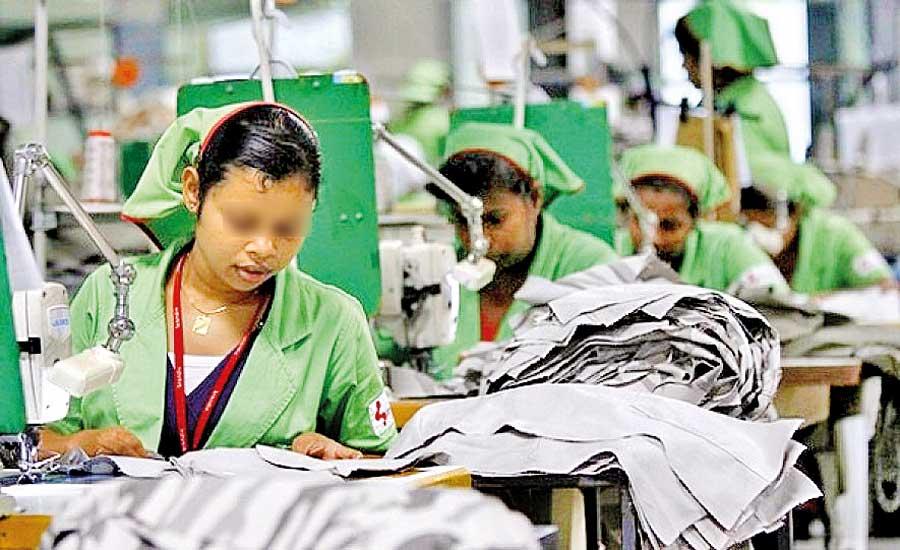Reply To:
Name - Reply Comment

What happens to most working people’s income when they fall sick or become too old to work? What does an economic depression or a disaster such as the current pandemic do to their day to day provisioning? The majority of our working people earn their living in the informal sector, where they are not compensated when their livelihoods are suddenly disrupted or they are no longer able to work. The sad reality is that they are pauperised when their livelihoods are wiped out or grind to a halt. Accessing sufficient food becomes difficult, meals are foregone and their children become malnourished.
economic depression or a disaster such as the current pandemic do to their day to day provisioning? The majority of our working people earn their living in the informal sector, where they are not compensated when their livelihoods are suddenly disrupted or they are no longer able to work. The sad reality is that they are pauperised when their livelihoods are wiped out or grind to a halt. Accessing sufficient food becomes difficult, meals are foregone and their children become malnourished.
The structure of our economy according to the Census and Statistics Department’s Labour Force Survey 2019 is such that out of a population of 22 million people, about 8.6 million people are economically active and 7.6 million are economically inactive. Furthermore, of the economically active (which includes the employed and unemployed in the labour force), 57.4% are in the informal sector and 42.6% are in the formal sector. Here, the informal sector is defined as those who are not registered with the Employment Provident Fund or Inland Revenue, those who do not keep formal accounts and those enterprises that employ less than ten individuals; if any of the above three conditions are present they are considered to be part of the formal sector. While 89% of the two million people in agriculture are unsurprisingly in the informal sector, 46.7% of the six million people in the non-agricultural sector are classified as belonging to the informal sector.
In this way, in Sri Lanka as with most developing countries, the majority of the labour forces are in the informal sector. However, many of those considered to be economically inactive, notably close to six million women, are in fact involved in some form of home-based production, which I would argue falls into a form of informal economic activity. The informal economy is often the first to be hit during economic downturns as money spent on regular expenses dries up from taking less three-wheeler rides, reducing the use of domestic help and cutting down casual labour in home gardens and farms Furthermore, with the COVID-19 pandemic and the greatly reduced movement of people and less activity on urban streets, many urban-based livelihoods have been completely wiped out, and large sections of working people thrown into destitution. Sadly, this predicament is not getting enough attention and our policymakers are also ignoring this issue all together; the 2021 National Budget has provided no additional relief to those suffering from the devastating economic crisis.
Women’s work
I am sceptical of the official data that claims only 34.5% of women over the age of 14 participate in the economy. The biases of such data, including the dismissal of various forms of women’s labour and production in the home and part-time work that sustains households and communities, have time and again been highlighted by feminist scholars.
How is women’s work affected by the pandemic-led economic depression? Even during normal times, a familial crisis such as a separation or death in the family can lead to women coming under tremendous pressure in the home. And now with this widespread crisis and whole communities being dispossessed, women will find it hard to even turn to their networks of family and friends for support, and will be severely weighed down by their burden of many dependents.
 While Sri Lanka’s strength compared to other developing countries has been relatively higher levels of literacy of women and better overall Human Development Indicators thanks mainly to our free education and healthcare systems, we are much more challenged in terms of the social institutions to empower women. Internationally, women’s livelihoods, particularly in the informal sector including home-based activities, face tremendous challenges in terms of protection from exploitation and their capacity to earn fairer incomes, both as wage workers and for their own production. Indeed, research around the world points to the importance of women’s participation and leadership in social institutions such as trade unions and co-operatives if they are to address the attacks, exploitation and exclusion of women as they labour to produce for the market and reproduce their household economy.In Sri Lanka, women’s community organising is heavily tilted towards top-down state engagement with the proliferation of institutions such as Women’s Rural Development Societies (WRDS), Women’s Societies and other Societies registered under various government arms such as the Divisional Secretariats. These overlapping and often redundant organisations are initiated without a viable local development vision and are severely under resourced. Such societies are merely mobilised for subsidy distribution and small donor programmes with targets set in Colombo, and are less likely to be steered by the concerned women themselves.
While Sri Lanka’s strength compared to other developing countries has been relatively higher levels of literacy of women and better overall Human Development Indicators thanks mainly to our free education and healthcare systems, we are much more challenged in terms of the social institutions to empower women. Internationally, women’s livelihoods, particularly in the informal sector including home-based activities, face tremendous challenges in terms of protection from exploitation and their capacity to earn fairer incomes, both as wage workers and for their own production. Indeed, research around the world points to the importance of women’s participation and leadership in social institutions such as trade unions and co-operatives if they are to address the attacks, exploitation and exclusion of women as they labour to produce for the market and reproduce their household economy.In Sri Lanka, women’s community organising is heavily tilted towards top-down state engagement with the proliferation of institutions such as Women’s Rural Development Societies (WRDS), Women’s Societies and other Societies registered under various government arms such as the Divisional Secretariats. These overlapping and often redundant organisations are initiated without a viable local development vision and are severely under resourced. Such societies are merely mobilised for subsidy distribution and small donor programmes with targets set in Colombo, and are less likely to be steered by the concerned women themselves.
In this context, the current crisis requires urgent rethinking of the future of such women’s organising for their livelihoods. My research in the North over the last decade showed how the post-war economic crisis combined with repeated rural shocks including droughts, led to tremendous indebtedness of women, particularly as predatory financial institutions preyed on women’s assets and incomes through financialised schemes such as pawning and microfinance loans. The alternative that has been strengthened in the form of credit co-operatives has to some extent alleviated this situation. Indeed, it is village-level Thrift and Credit Co-operative Societies led by women that have been a source of relief to women, not just providing affordable credit but also as a space of support when faced with personal problems and crisis.
The current crisis where women’s formal employment is under attack with layoffs in factories, including in the garment sector, is only the tip of the iceberg of the escalating crisis in the informal livelihoods sector that is invisible to economists and their datasets. Women eking out a living through catering food for example are bullied into stopping production by overzealous health inspectors – while many restaurants get away with more serious food safety issues – with little recourse to appeal or negotiate a solution. Home-based petty producers of goods such as baskets and brooms are exploited by traders without collective avenues of marketing for a fair price. The current moment should serve as a wakeup call for women’s organising to ensure that their economic activity is made visible, and social institutions such as trade unions and co-operatives are pushed to safeguard the rights of women producers and organise ways of sustaining and increasing women’s livelihoods and income streams.